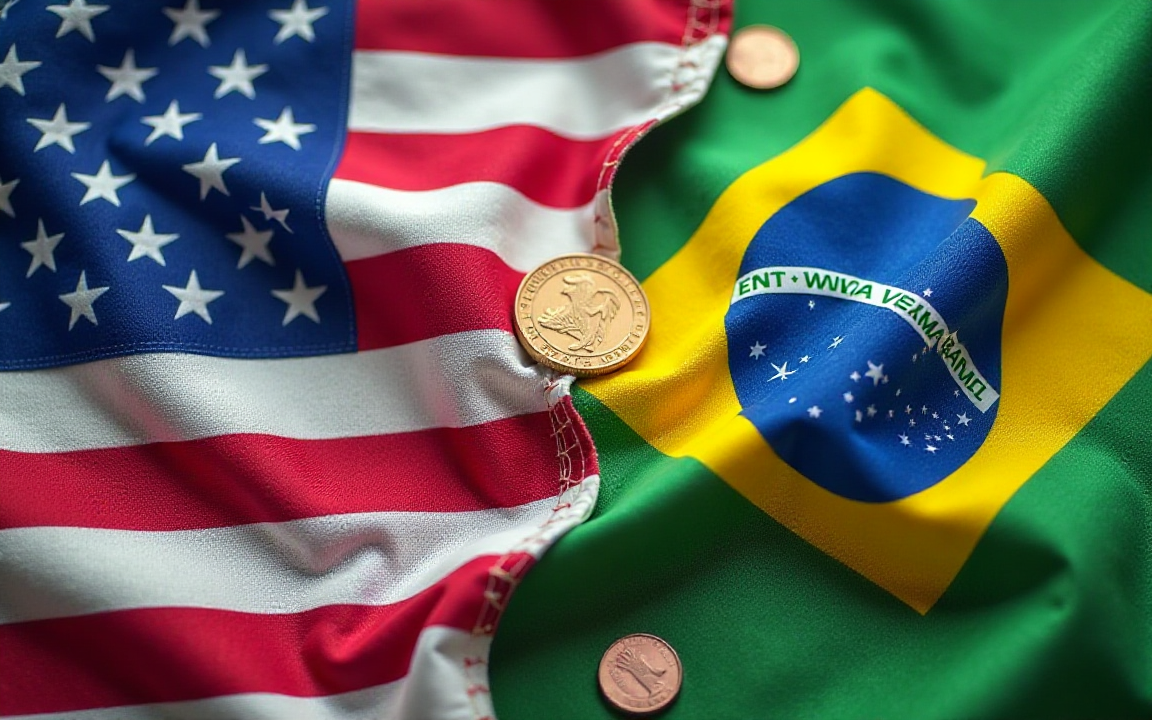US President Donald Trump announced on Wednesday that new trade duties will have a minimum rate of 15%, with the possibility of reaching 50%, and suggested that Brazil will be the only country subjected to the maximum rate among those that received letters in the past few weeks.
The additional tariffs, which take effect on August 1, represent a significant increase in trade hostilities.
“We’re going to have a simple, straightforward tariff of somewhere between 15% and 50%,” Trump stated at an artificial intelligence summit in Washington. He also stated that the tariff floor, which is presently set at 10%, may rise.
Brazil’s presence on the list follows recent criticism from the White House over former President Jair Bolsonaro’s prosecution and alleged unfair trade practices.
According to Trump, the higher tariff is aimed at countries with which the US has not “done very well.” “We have 50% because we haven’t done very well with those countries,” he said.
The US government is investigating Brazil’s economy, specifically the Pix digital payment system and São Paulo’s popular Rua 25 de Março business sector.
Brasília scrambles to contain economic fallout
The new threat has prompted an immediate response from the Brazilian government.
But President Luiz Inácio Lula da Silva’s administration is examining a variety of emergency actions to protect parts of the economy that are most vulnerable to the US.
One of the proposals includes establishing a special credit fund to support industries badly affected, such as steel.
Finance Minister Fernando Haddad said the matter was already settled and will be an extraordinary credit to help keep companies afloat as they contend with higher costs.
Vice President Geraldo Alckmin suggested sending an interministerial delegation to Washington to request a 90-day suspension and negotiations toward a trade agreement.
In exchange, Brazil would concede, including making it easier for US goods to find their way into the Brazilian market.
The National Confederation of Industry (CNI) also supported the appeal for a delay, arguing that it will have early economic consequences in all industrial segments.
Political tensions impede diplomacy
Efforts to launch formal negotiations have met with unexpected internal resistance.
Eduardo Bolsonaro, the former president’s son, claimed on social media that he would use his influence in Trump’s circle to prevent any Brazilian delegation from being received.
His decision is commonly interpreted as an attempt to use trade policy to get political concessions, such as amnesty for those convicted or under investigation for the January 8, 2023, attacks on Brazil’s institutions.
This meddling has added political friction to an already complex diplomatic situation, with ramifications for Brazil’s overall relationship with the US.
Brazil appeals to consumers and global institutions
In addition to government-led initiatives, Brazilian business leaders are targeting American consumers to raise awareness about the practical implications of tariffs.
Agribusiness representatives have launched campaigns to emphasise how tariffs could raise the prices of daily products in the United States, including pork, orange juice, and coffee.
A US-based juice distributor has already launched a lawsuit, citing rising expenses and the possibility of job losses.
Brazil has taken its case to the World Trade Organisation. Without addressing the United States specifically, Brazilian Ambassador Philip Gough denounced the use of tariffs for political ends.
In a forceful statement, he denounced the legislation as “an unprecedented attack on the multilateral trading system,” warning that such actions are “a dangerous shortcut to instability and war.”
Outlook uncertain as August 1 deadline approaches
As the deadline approaches, Brazil’s opportunity for avoiding the 50% tariff is closing.
While Washington has yet to formally announce Brazil’s final rate, all indications lead to the imposition of the maximum penalty.
As negotiations stall and political intervention escalates, Brazil’s strategy now relies on a combination of emergency economic assistance, diplomatic pressure, and worldwide lobbying.
The post Trump signals 50% tariff on Brazil amid political tensions and trade disputes appeared first on Invezz

